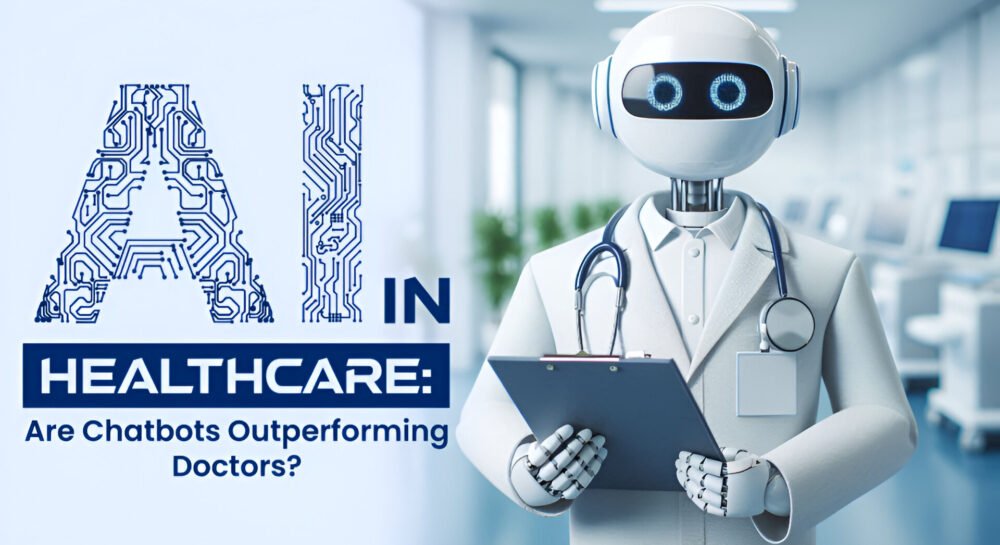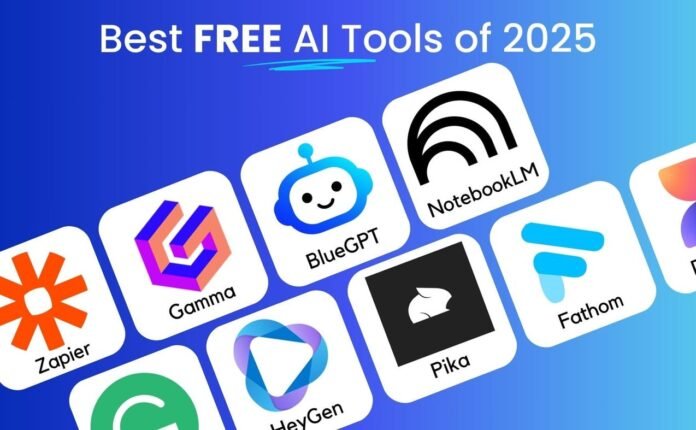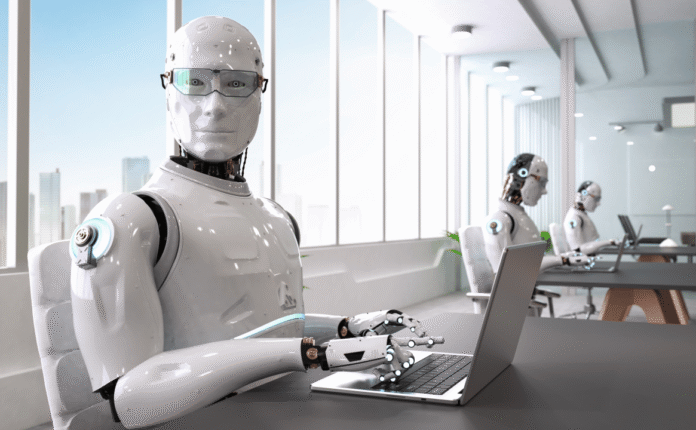Artificial intelligence (AI) is impacting nearly every part of modern life, but perhaps nowhere will its influence be more impactful than in healthcare. With increasingly limited resources to meet expanding demands on a system that is already jammed, an aging population, and an ever-present need to improve patient outcomes, AI technologies—from sophisticated algorithms to robotics—are rapidly changing the healthcare space as we know it. It will be important to note that utilizing AI technologies is not just a means to improving efficiencies; it enables significant advancements in healthcare that literally save lives by permitting earlier diagnoses and more accurate treatments while enabling safer surgeries.
The Role of AI in Diagnosing Diseases
One of the most important areas where AI is having a life-saving impact is in the early and accurate diagnosis of disease. Traditional diagnostics rely on humans interpreting imaging, lab results and patient histories; all of which rely on human processes that are subject to human error and simply take time. AI-based tools, specifically deep learning and neural networks, can analyze and compare petabytes of data extremely quickly and accurately.
For instance, algorithms that are trained on thousands of radiological images are able to see signs of breast cancer or lung cancer, previously unidentified to human radiologists, much earlier than human imaging would. This extends beyond imaging, as Google’s DeepMind has demonstrated they have created models that outperform human experts at diagnosing more than 50 different conditions in the eye, and there are AI training algorithms being built to analyze and detect skin cancers, cardiac issues from ECGs, or neurological disorders such as those studied in Alzheimer’s models from imaging and genetic information.
Early diagnosis is important for survival in many conditions, and moving forward in time with a more accurate diagnosis will help save lives. AI is advancing diagnostics by its ability to provide more accurate commodity and diagnostic tools faster than humans and before anyone can catch on.
Personalized Medicine and Predictive Analytics
Artificial intelligence (AI) is kicking off the era of personalized medicine. Many common medical treatments are typically viewed as a “one size fits all” treatment because of the complex ways in which different people can respond to the same therapies. Additionally, AI enables treatments to be personalized according to the unique genetic makeup and construct of each patient and their lifestyle and health history.
Machine learning models can provide predictions on how each of the different patients might respond to one therapy or the other. By deciphering patient responses, clinicians can peer and subsequently choose the best course of therapy for each individual patient, which minimizes undesirable side effects. AI can also connect cancer patients with the best potential clinical trials or experimental treatments, which could lead to a substantial improvement in survival rates.
Furthermore, AI predictive analytics can reveal patients at risk of developing chronic diseases like diabetes, hypertension, or heart disease. By using predictive analytics systems to analyze EHRs, lifestyles and habits, and genetic markers, it is possible for AI models to look for ways to help with preventative strategies or early intervention, which could avoid complications and hospitalizations altogether.
Robotic Surgery: Precision and Safety
AI is also being utilized in robotic surgery. Robotic surgeons are surgical robots, supported by their human counterparts, that have the added benefit of AI capabilities and can assist physicians in performing different surgeries with unprecedented precision and minimal invasiveness. Surgical robots like the da Vinci Surgical System can make micro/milli-level movements that lessen trauma to the patient’s tissues, improve recovery time, and lessen risks of infections.
Aside from assisting surgeons in the OR with capability, AI is also being deployed to aid in real-time decision-making. With huge amounts of data in so many aspects of healthcare, AI and machine learning are being utilized to reflect on patient vitals and surgical data from procedures that have occurred in the past. Furthermore, AI can bring attention to possible complications or optimal routes of procedure to surgeons throughout the surgery. By all of these support modalities, surgeons are performing better surgeries in better time and being more cognizant of patient safety as well.
Virtual Health Assistants and Patient Monitoring
AI is saving lives outside of hospitals by using virtual health assistants and remote monitoring technology to support patients in managing chronic conditions and taking medications on schedule and to support caregivers in recognizing early warning signs that a patient’s health is deteriorating.
These technologies use natural language processing (NLP), machine learning, and real-time data analytics to provide support to patients and caregivers. Wearable devices powered by AI can monitor heart rates, oxygen levels, glucose levels, and more. When patient data shows anomalies in the patient’s data, AI will trigger alerts for caregivers, care coordinators or healthcare providers to organize timely medical interventions. This is particularly useful for elderly patients or for patients who live in remote locations and have limited opportunities to seek health care.
Addressing Epidemics and Controlling Public Health
AI has been absolutely vital in controlling public health issues, including the COVID-19 pandemic. AI models facilitated predictive modeling of outbreak trajectories, helped understand the evolution of mutations in the virus, and identified ways to assist in the stalled supply chain issues, helping optimally allocate critical care resources, such as beds, ventilators, and personal protective equipment. AI chatbots and symptom checkers use AI to help alleviate CHHS and emergency hotlines, indicating what people should and should not seek medical help for.
Beyond interventions in epidemiology, AI is also being used to expedite vaccine and drug development, creating a more adaptable drug development program. AI accomplishes a significant part of the work without skipping the quality of science. AI simulates interactions of various molecules as well as predicts which molecules are more likely to be effective, so it reduces the time taken to create new treatments and keeps track of which compounds are prioritized in clinical studies.
Ethical Considerations and Challenges
AI’s possibilities in healthcare are enormous, but so are the potential ethical and practical problems. There are important issues around data privacy, algorithmic bias, and whether decisions can be decided transparently, even how we make sure AI systems don’t cross an ethical line, etc., which are all very important problems to consider for fairness, safety, and accountability in AI systems.
Additionally, the reliability of AI in healthcare will also require training for healthcare professionals, acceptable regulation, and assurance that AI applications are helping with and not replacing the practice and application of human expertise.
The Future of AI in Healthcare
AI’s future in healthcare will include an extended role. We can expect smarter diagnostic systems, AI-enabled hospital logistics, as well as more immersive robotic technologies. As AI systems continue to learn from larger datasets and advance into ever more complex systems, AI’s ability to improve outcomes, cut costs, and save lives will continue to improve.
But the real key to unlocking AI’s full potential lies in cooperation between technologists, clinicians, ethicists, and policymakers. With planning, co-creation, and ethical deployment, AI can help develop a more efficient, effective, and humane healthcare system.
Conclusion
AI is not a concept of the future but a fact of today that can save lives! The wide-scale acceptance of AI and robotics in medicine, from more accurate and earlier diagnosis of illnesses to delicate surgeries to directives on public health emergencies, is changing the face of healthcare. Despite the problems and challenges that lie ahead (and there are many, as we have outlined many in this document), the conclusion is clear – AI and robotics are keeping people alive. And AI’s role in healthcare is only going to grow in importance, relevancy and jurisdiction.



